From 6 To 70, My Life As A Pianist–Louis Mbanefo, SAN
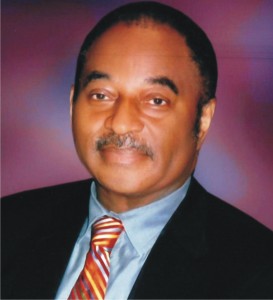
Barr. Louis Mbanefo is 70 years old,this 23rd day of September,2014. The age of 70 is the biblical age of maturity, and it elicits respects and reverence. It symbolises wisdom as Mbanefo epitomises integrity. For a legal icon who got the distinguished and most revered honour in the legal profession 26 years ago, when the fear of lawyers was the beginning of rebirth, it means that he has seen it all in the profession.
Today, the name Mbanefo evokes authority, especially in the maritime industry where he stands astride as one the pioneers who set standards of practice. It is not surprising then that he is embittered over the falling standards of practice, tinged with layers of professional ignorance and abortion of integrity.
He takes a holistic review of the maritime industry and laments the invasion of politicians who often come to destroy than build the industry. At least, he spoke as the man who chaired and directed the affairs of the Board of the defunct Nigerian National Shipping Line(NNSL).
Mbanefo has his first love—Piano, which he started playing at age 6 through the influence of his mother. The passion grew over time to become a second profession that it gave birth to the Musical Society of Nigeria(MUSON) and its Centre. He has performed over 100 concert as a pianist. And chaired the Board of MUSON for over 6 years and now for the second time the Vice- Chairman to Akintola Williams.
He is married to Barr. (Mrs) Monica Mbanefo of the International Maritime Organisation(IMO).
Congratulations, Uncle, as fondly called by many of his admirers and mentees. Excerpts:
How does it feel being seventy?
Well, it feels no different from 50 or whatever, I don’t feel the age at all, and God has been merciful, but you have to maintain good health, and a lot of it has been my lifestyle, I do a lot of exercise, moderate lifestyle not excessive.
Looking back, can you really say that you are fulfilled due to some landmark achievements?
Yes, on the positive side, there are so many things that one can be grateful to God for being able to achieve. In the aspects of my contributions to the development of Maritime Law, it is a case of being at the right place at the right time and being in the position of being able to do the necessary research, write the necessary books, appear as counsel in my area at important cases and making contributions to the Nigerian Maritime Law Association and being the first African to be appointed to the Executive Council of International Maritime Law Association. These are things that looking back one feels very happy about being opportuned to do.
Are there any regrets?
I think one has to be very positive. And apart from the legal aspect, I also have done a lot in the Muson Centre, I am one of the pioneers in the Muson, and playing the Piano is my hobby. I have performed over hundred times at the Muson .. I have been a Trustee of Saint Saviour’s School at Ikoyi and Ebutte Meta; I have been Chairman Board of Trustees of the two schools for the last twelve years. So it has been a very thrilling time and moreover one has been very fortunate to have a very wonderful wife and family. Two sons and a daughter who have done their Masters, the boys lawyers, so all in all, one has been fortunate
How did you meet your wife?
We met at the Nigerian Law School. I came back to Nigeria finally from England after my education for four years in 1972 on my first day at Law School, I set eyes on her and a few days later I got introduced to her and the rest is history. It has been a wonderful 41 years.
Looking at the Maritime Industry, are there things you think are not going the way they are supposed? Recently, Sarumi talked about certain things being absurd, he described some things as square pegs in round holes. In your opinion, how would you rate the Industry, considering the role you played before and what is obtained now?
My role in the Industry has been the Law and Advocacy. And I must say that I am disappointed the way things have turned out. Standards were very much higher 35 years ago than now. Maritime Law has become an all comers affair. All kinds of characters come in, with no integrity. I am very disappointed. Things hadn’t developed the way I hoped. But as regards the Industry as a whole, there is too much interference by politicians.
I was the last Chairman of the Nigerian National Shipping Lines(NNSL). A very sound board was appointed in 1993 to commercialize the company and make it run as a profit making organisation, it was almost bankrupt at the time, and with the help of people like Chief Oyesiku the foremost Maritime man in Nigeria., we were on the part to reviving the company when the politicians just came and dissolved our board unceremoniously and having taken over the company they wound it up, so it was a huge disappointment.
Anyway, generally, when you look at the industry now there is no consistency; there is a lack of seriousness, we are not focused. In other countries things are done in a very focused and progressive manner but here we go backwards, we go round in circles, we make laws not kept. To me it does not make sense at all. So by and large, it’s not encouraging.
You talked about some facts about certain things in the Industry or should I say quacks, from the point of the association which you are leading now, what efforts are you making to let people understand that there are people who should not be in the Industry?
It is not the role of the association to act as police for the Maritime Industry, all it does is to promote the understanding and development of Maritime Law and in that it has been doing very effective. The fact that all kinds of things go on, it is deplorable but there is nothing we can do about it, there is malaise in the whole legal profession, standards and integrity has gone right down.
There has been complaints about the process in which lawyers emerge as SANs, sometimes not too friendly to the feminine folk, sometimes not too straight in the selection, what do you have to say in that regard?
I can’t say anything about the selection process because I am not involved in it in any way, I don’t act on rumours, you hear all kinds of rumours, and I don’t act on them. But what I know is that in my days, I was appointed SAN 26 years ago, the measures were stringent, we were only five in the whole country each year, now I think it is about 25 each year. The criterion in those days was how well you did, now it seems to be how many cases you have done in this court or in that, so people do all kinds of things to make cases under their name so that they will be selected, but in those days judges were asked to comment on their performance. They have to get judgement of the Supreme Court, the Federal High Court and The Court of Appeal on a person who qualifies, but now I don’t know to what extent that happens.
Would you say that the Shipper’s Council has lived up to its role as a regulator?
I don’t know, I have not been monitoring what they have been doing. I have been travelling out of the country a great deal in the last few months, so, I have no idea what has been happening. But I have every confidence in Hassan Bello. He is someone I respect a lot; I believe he is doing a good job.
What is your take on the idea of floating a new National Shipping Line after so many years?
I think it is a total waste of time, the problems that were there before will continue to be there since you have politicians involved and things are based on all kinds of irrelevant considerations, I don’t think we are going to get there. One of the very unfortunate things was when they dissolved the company. They sold off all the assets of the company, sold all the houses, they now have to start all over again acquiring those things at higher cost, vessels are not cheap and who is going to man these vessels.
When we first started at NNSL, we had our core of very ebullient young people who were trained specifically and these one became the captains of these ships but many of them are in their 70s or so I don’t know the key materials we have now. There has been a sort of hiatus, there hasn’t been any consistency in development, so who is going to be your captian?
Let’s look at the local content in the industry, the Cabotage Law has been in limbo for about 9 or 10 years now, the Nigerian Content Board which is supposed to be all encompassing has not really made a mark in the Maritime Industry, how do you feel about that?
As I said earlier, there is lack of consistency everywhere. I am yet to see any coherent policy which is carried out meticulously. We take this approach now and a different one later, things change, new actors come on stage. Frankly, I am very discouraged because I don’t see any seriousness, any consistent drive to maximise the potentials of the Maritime Industry.
Your baby, the Maritime Seminar for Judges, how many years down the line would you say the concept has achieved what it set out to achieve?
I think that one is very successful, thanks largely to the efforts of the Nigerian Shipper’s Council. They played a very active role in organising it .It really touched the imaginations of a large number of judges. They find it stimulating and interesting, but I tend to feel that the papers are a little bit technical, too long. Judges came up with a lot of written materials which I have not been able to digest. At the initial lectures we had we brought the thing down to earth so that at the end, judges were delighted and said that at blast , they understand what Maritime Law is all about,
When would you say you made your first one Million Naira?
One million Naira in the 1970s is different from one Million naira today. I t is difficult to say because it all depends on how strong the Naira was at a particular point in time. But what I would say is that during the second half of 1970s, 80s, 90, one had a very lucrative practise, there were few of us on ground, but now the whole thing has become diluted and all kinds of people come in, but it suits me fine because I am getting tired, let others continue, but I must say that I am not happy because they have not maintained the same standard of integrity, research and scholarship we see in the old days.
It is good to know that you have another side that some of us don’t know about, what would you say is one good memorable experience you had?
There are so many, there is no particular one. At the age of six my mother got me a musical tutor and music has been my lifelong companion and pursuit and during my school days I was able to take it higher. When I came back to Nigeria, I performed in a lot of concerts. As a stepping stone, I had discussions with Akintola Williams which led to the founding of the MUSON. I was Vice-Chairman to Akintola for eight years, Chairman for six, and now I am back to being Vice-Chairman to Akintola again. The MUSON is one of the highlights of my achievements and as a pianist; I have performed in over 100 concerts.
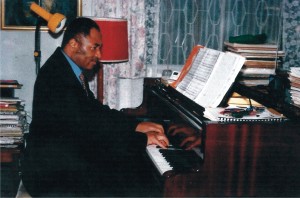
Have you had any special performance?
We have an annual MUSON festival which I started when I was Chairman where drama, Art Exhibition, Jazz etc are showcased. I think one of the greatest contributions of the MUSON is the School of Music which was one of the initiatives before we started and it is producing Musicians who are making waves in the world. There was a performance two weeks ago by two of the school’s alumni. One is based in England and the other in America, and their performance is of international standard. It is very heart-warming to see that the seeds planted those days have germinated and are yielding good fruits.



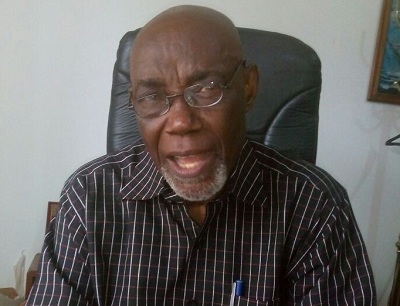
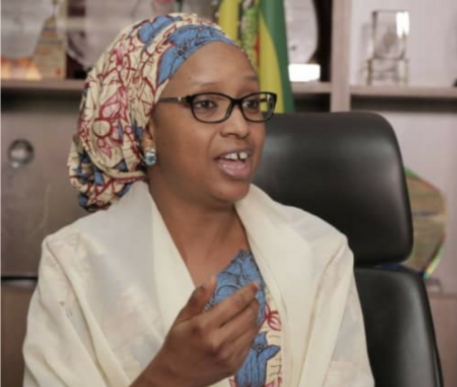
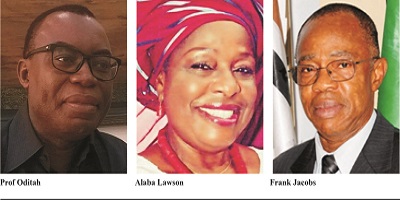
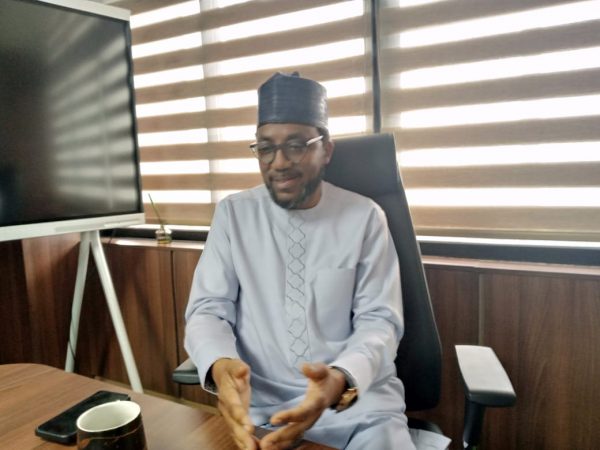
I wish to send my greetings to Mr Louis Mbanefo, SAN. He is not likely to remember me, but I met him when he was at Queen’s College, Cambridge in 1965-66.. I was better acquainted with his brother Charles because Charles and I were both at Magdalene College, Cambridge. I also knew their father, Sir Louis Mbanefo. I am a Briton who have spent most of my working life in Nigeria. I am a Professor of English at the University of Jos. A great lover of music myself, I applaud Louis for his work in establishing MUSON, and am delighted to know he plays the piano.